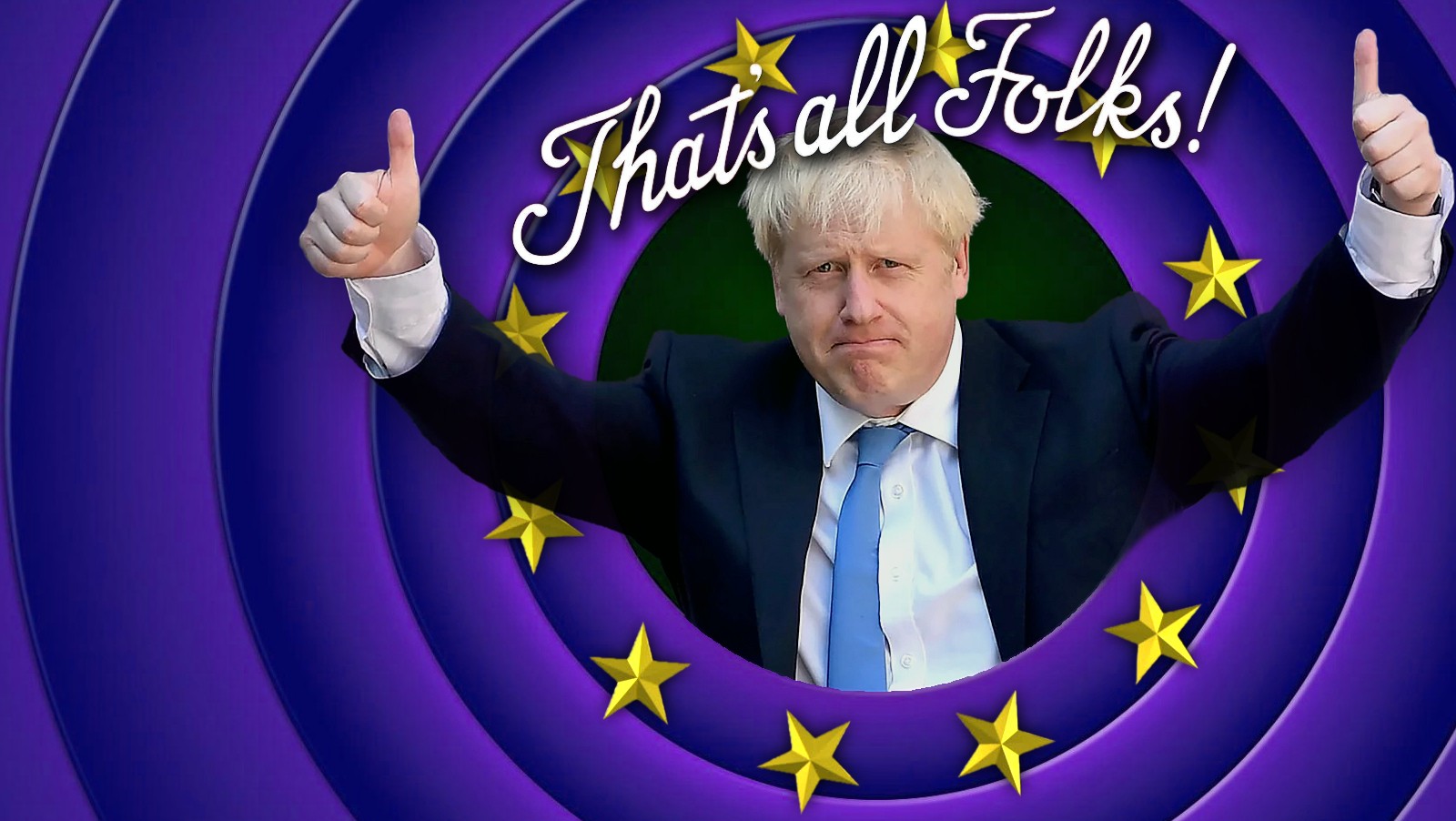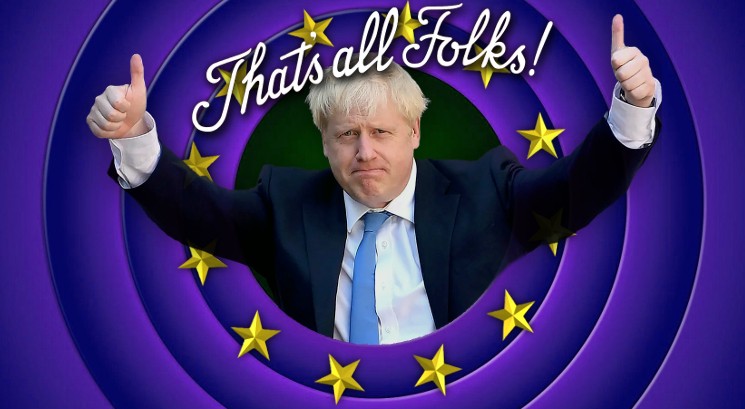
THE UK
2018 ended with UK gambling operators pledging new voluntary advertising restrictions and the industry never really got out of this defensive crouch throughout 2019.
The new £2 max stake on fixed-odds betting terminals took effect in April, creating havoc in the quarterly reports of operators with a large high street presence. A group of parliamentarians then suggested a similar £2 limit on online slots and the UK Gambling Commission launched a consultation on banning online credit card gambling.
The UK’s online sector suffered its first ever revenue decline in the 12 months ending March 31, and while much of this decline was due to falling betting margins, the decline is expected to accelerate thanks to the April 1st hike in Remote Gaming Duty from 15% to 21%.
The tightened regulatory environment, including new ‘know your customer’ requirements, caused several operators, including 188Bet, to shut down their UK-facing operations. Other operators had that decision forced on them, like 1xBet, which shut its UK site and lost its local football sponsorships amidst an investigation into FSB Tech’s white-label partners. EveryMatrix’s UK partners were left scrambling when the UKGC suspended the platform provider’s license.
All told, the UKGC doled out nearly £14m in financial penalties against its licensees in 2019, with InTouch Games, Betit, Kindred Group, Gamesys and GVC Holdings’ Ladbrokes and Coral brands forced to dig deepest to atone for their various transgressions.
UK operators did their best to at least appear to care about their public image, forming a new industry association that pledged new safer gambling commitments and time-outs for FOBT gamblers who can’t say ‘when.’ The five largest firms also agreed to boost their responsible gambling contributions to between £60m-£100m within five years, but these efforts mostly came off as a day late and a hundred million pounds short.
All political parties had promised to box the ears of gambling operators and the Tories, who won the General Election, vowed to “review” the 2005 Gambling Act with a focus on “credit card misuse.” But UK gambling operators’ shares soared in the wake of the Tory landslide, evidently proving once and for all that gambling truly fears socialism.
The rapid pace of consolidation that the UK/Europe – we have to treat them separately now that Brexit’s a go – online sector has undergone in recent years slowed in 2019, but only because of the sheer scale of the one big deal.
Flutter Entertainment’s proposed absorption of The Stars Group threatens to concentrate an unprecedented number of A-list gambling brands under a single corporate banner, at least, until the regulator-mandated sell-off of some of the lesser lights begins next year.
 The proposed Stutter Group’s scale only served to make William Hill seem even smaller by comparison. Hills, which unsuccessfully flirted with Stars (then Amaya) a few years back, had a similarly unfruitful discussion with US casino debt mountain Caesars Entertainment in 2019. Hills did manage to pick up CG Technology’s Nevada sportsbook assets but that really wasn’t the kind of deal that stops UK analysts in their tracks.
The proposed Stutter Group’s scale only served to make William Hill seem even smaller by comparison. Hills, which unsuccessfully flirted with Stars (then Amaya) a few years back, had a similarly unfruitful discussion with US casino debt mountain Caesars Entertainment in 2019. Hills did manage to pick up CG Technology’s Nevada sportsbook assets but that really wasn’t the kind of deal that stops UK analysts in their tracks.
Oh, and Bet365’s annual revenue hit £3b and UK media had their traditional freakout over the fact that co-CEO/co-owner Denise Coates collected the UK’s highest annual pay packet. Again.
GERMANY
Germany passed yet another gambling treaty that won’t survive legal challenges but this time even the signatories didn’t expect it to last longer than 18 months. The current plan is to kick the can down the road until a permanent treaty can be crafted by June 30, 2021, but there’s still no consensus whether this will include online poker or casino products in addition to sports betting.
In the meantime, Germany ordered its would-be betting licensees to halt all online casino/poker operations as of January 1, 2020 and backed up this demand by tightening its scrutiny of online casino payment processors.
But interest in these new German licenses has been (literally) non-existent, in part due to operators’ misgivings over the temp treaty’s 5% tax on betting turnover, in-play betting ban and €1k monthly spending limit. Hey, remember that German stereotype about their efficiency and engineering prowess? No, neither do we.
Shortly before Christmas, Bet365 announced that it would shut its German-facing online casino by December 30, suggesting that at least someone is taking the Hessian henchmen at their word.
ITALY
Italy started the year off with a stumble, issuing only half the number of new online gambling licenses it originally forecast, but those estimates were made long before the government decided that gambling was la causa di tutti i mali.
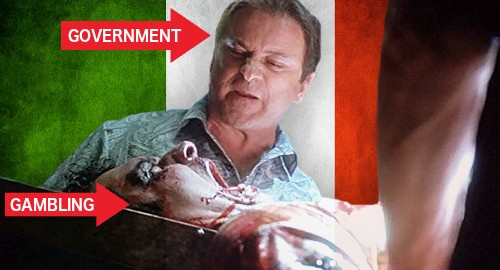 Part of the lack of enthusiasm toward Italian gambling licenses was due to the country’s advertising and sponsorship ban (the latter half took effect in January). The ban was intended to save local residents from the fires of gambling hell but the net effect was to enshrine the positions of existing operators – particularly those with a land-based presence (as betting shop windows were allowed to continue promoting their brands) – at the expense of new entrants.
Part of the lack of enthusiasm toward Italian gambling licenses was due to the country’s advertising and sponsorship ban (the latter half took effect in January). The ban was intended to save local residents from the fires of gambling hell but the net effect was to enshrine the positions of existing operators – particularly those with a land-based presence (as betting shop windows were allowed to continue promoting their brands) – at the expense of new entrants.
Italy’s government also decided that gambling was the piggy bank you could just keep smashing. The year started with new taxes for both online and land-based gaming and is ending with the government mulling even more taxes and restrictions on land-based operations. Bottom line, expect far more reports of mafia-linked illegal gambling busts in 2020 as punters seek out cheaper alternatives to government-approved operators.
RUSSIA
2019 was the year that Russia finally got wise to the fact that its annual blocking of over 100k unauthorized online gambling domains was no serious deterrent to the black market so they decided to get serious about blocking online payments.
The effect was dramatic on certain sites with large Russian customer bases, such as PokerStars, whose parent company The Stars Group reported double-digit online poker revenue declines (after originally promising that the impact would be ‘short-term’ and not ‘meaningful’).
Russia’s domestic operators caught a well-needed break in the summer when the government finally approved a simplified customer registration process. However, the shift appears to have come too late to save GVC Holdings’ struggling Russian joint venture Bwin.ru, which lost its CEO to rival Parimatch in May and by November its Russian money-man was reportedly talking about pulling the plug.
 SWEDEN
SWEDEN
Sweden’s regulated online gambling market launched January 1 with high hopes and a virtual who’s who of new licensees, all bright-eyed and full of hope. This lasted all of three weeks, when the Spelinspektionen regulatory body issued a blanket warning to all 66 licensees to up their compliance game, particularly in honoring the new Spelpaus self-exclusion registry.
The second warning came the very next month, this time about bonus offer abuse. The first financial penalties came in March and they would most definitely not be the last, although only one of the 50-odd fines issued this year has actually been paid.
By the end of Q1, online licensees with a major Swedish presence were bemoaning the costs of compliance. By the end of Q2, some of those operators were turning in their sportsbook licences because they had no idea what was and wasn’t against the rules anymore.
Undaunted, Spelinspektionen kept upping the ante, revoking the license of Ninja Casino’s parent firm Global Gaming for a variety of regulatory shortcomings. The company made numerous appeals, all of which were rejected, leading to a 76% revenue decline and a halving of Global Gaming’s workforce by the end of Q3.
Swedish residents were already sour on gambling advertising and state-run Svenska Spel threw the rest of the industry under the bus in April by pledging to halt its online casino advertising (while abusing its state-owned privilege to stealth-pimp its products on TV). That same month, the government formed a commission to consider a partial or total ban on gambling ads (with a decision expected this spring).
In November, the Swedish ombudsman won a court case against (again) Ninja Casino, whose marketing efforts were deemed to violate Sweden’s requirement for ‘moderate’ advertising campaigns, whatever those are.
 NETHERLANDS
NETHERLANDS
The year began with the Dutch senate finally passing its Remote Gaming Act and operators quickly filed expressions of interest, despite the Justice Minister warning that online gambling ‘cowboys’ would have to serve a ‘cooling off’ period of indeterminate length. And there was no shortage of cowboys in the crosshairs of the Kannspelautoriteit (KSA) regulatory body this year.
In 2018, the KSA issued a then-record €1.7m in online gambling fines but the KSA doled out €3.5m in penalties in 2019 in an apparent attempt to set an appropriately punitive tone ahead of the regulated market license derby. The regulator even went after Dutch-facing online affiliates.
True to form, the ever-cautious Dutch government found it too difficult to approve the secondary online gambling legislation on schedule, pushing the regulated online market’s target launch date back six months to July 1, 2021. Nonetheless, in mid-December the KSA warned applicants to ensure their customer age verification processes were up to code as of January 1, 2020 or their application would be shuffled to the bottom of a very large pile.
FINLAND
Finland’s state-run Veikkaus gambling monopoly set off a public relations land mine this summer with a truly tone-deaf radio promo urging listeners to stop suppressing their gambling urges and make a bet already. Within days, Veikkaus was trying to make amends by pledging to cut its number of land-based slots, then promising further cuts when the initial cuts didn’t stop the public’s calls to end the monopoly.
Veikkaus’ blunders were magnified by the actions of Paf, the monopoly in Finland’s autonomous Swedish-speaking region. Paf began decreasing its reliance on high-rolling customers in 2018 and took further steps along this path in 2019, even as its revenue and profits took a hit.
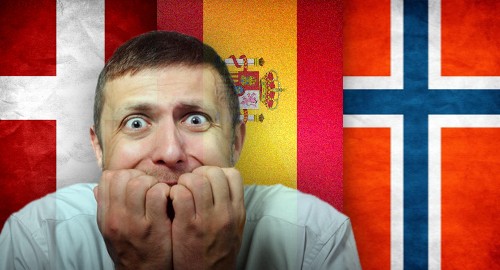 ALSO RANS
ALSO RANS
Like everywhere else, Spain’s online gambling operators were threatened with tough new advertising restrictions, which they hoped to fend off by adopting their own voluntary code.
Denmark’s online operators also adopted a new advertising code but it didn’t stop the government from announcing plans for a major online gambling tax hike in December. Online licensees will also face new deposit limit rules come January.
Norway’s government ratcheted up its fight against unauthorized online gambling sites and their payment processors, with fresh crackdowns set to take effect on January 1, 2020.
Switzerland’s casinos finally began launching their new online gambling sites, while the government launched its ill-advised efforts to block the domains of international gambling operators who failed to stop serving local punters.
Nothing much happened in France, except the government finally got around to privatizing the Française des Jeux lottery and sports betting business. Oh, and the government hatched a plan to shift to a revenue-based gambling tax with some truly daffy double-digit rates.
And Greece made slightly more than its usual token effort to approve new online gambling rules, although not without some failed attempts to sneak in even higher taxes at the last minute.
LAND-BASED GAMBLING
Europe doesn’t really have much of a land-based casino industry, as evidenced by the fact that the continent’s most notable casino story may have come in November when the Novomatic Group was forced to sell its stake in Casinos Austria as the public heat from Novomatic’s alleged role in a political patronage scandal grew hotter.
Greece tried its best to get off the casino schneid in 2019, finally moving on its plans to authorize the continent’s largest integrated resort, although only two operators actually bothered applying for the lone gaming license. Even that proved too much to handle, as a paperwork snafu involving Hard Rock International (HRI) threatened to derail the whole process in a flurry of lawsuits.
HRI also ran into headwinds in Spain, a veritable elephant graveyard of failed mega-casino projects, where plans to build a Barcelona-area integrated resort stalled due to land-rights issues.
The continent’s only tangible integrated resort project, Melco Resorts & Entertainment’s City of Dreams Mediterranean in Cyprus, finally got underway this year, although the resort’s opening date got pushed back until the end of 2021.
AFRICA
There wasn’t much earth-shaking news in Africa’s gambling markets in 2019. South Africa’s Phumelela suffered the worst results in its 22-year history while Uganda reportedly mulled whether to nationalize its gambling operations after deciding it wouldn’t renew licenses held by international operators doing business in the country.
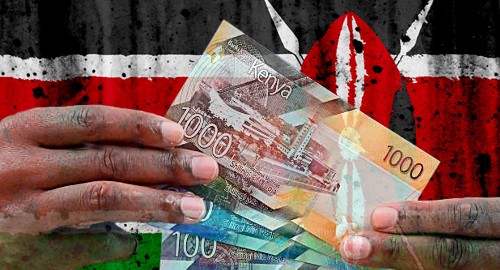 But Kenya’s market underwent a seriously seismic shift in 2019 after a frenetic couple years in which the government seesawed back and forth on issues such as gambling tax rates and advertising restrictions.
But Kenya’s market underwent a seriously seismic shift in 2019 after a frenetic couple years in which the government seesawed back and forth on issues such as gambling tax rates and advertising restrictions.
2019’s turmoil kicked off when market-leader SportPesa was hit with a $103m bill – later raised to $147m with penalties and interest – for what the government claimed were uncollected withholding taxes on gamblers’ winnings. That kicked off a yearlong debate over whether the 20% winnings tax applied only to actual winnings or to the punters’ original betting stakes.
In July, the government suspended the gaming licenses of 27 betting operators it claimed collectively owed $586m in back tax, then suspended these operators’ digital payment processing channels. Despite support from some politicians, Kenya’s president refused to relent, warning that he was open to a total ban on all gambling if the sector wouldn’t play ball.
SportPesa and rival Betin were forced to shut their Kenyan operations and lay off hundreds of staff, and while they ultimately convinced the courts that their reading of the tax laws was correct, the government stubbornly refused to give up the fight.
In November, the government looked favorably on a report urging it to replace its open gambling market with a state-run monopoly. It remains to be seen whether this is a serious option under consideration or simply a new level of brinksmanship in the government’s quest to compel its betting operators to remit the alleged arrears.
